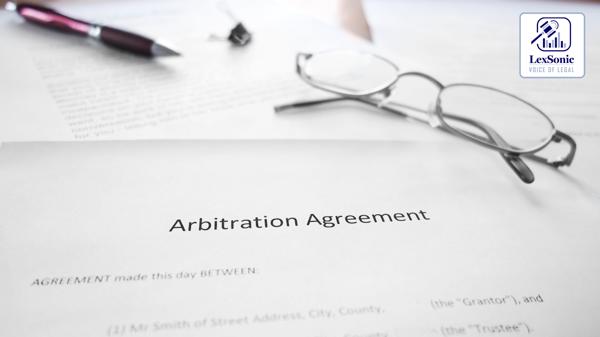From Unilateral to Fair: Court's Intervention in Arbitrator Appointment.
21 March 2024
Arbitration Law >> Business & Commercial Law
In the case at hand, Kirloskar Pneumatic Company Ltd (the petitioner) has filed an arbitration petition seeking the appointment of a Sole Arbitrator to resolve disputes arising from a Dealership Agreement dated June 19, 2013, with Kataria Sales Corporation (the respondent). The petitioner, a manufacturer and seller of air and gas compressors, accessories, and spare parts, entered into a dealership agreement with Kataria Sales, a company engaged in similar business. The dispute primarily revolves around unpaid invoices and part payments for goods supplied under the agreement.
Background of the Dispute:
The dispute dates back to March 27, 2015, when Kataria Sales placed a purchase order with Kirloskar Pneumatic Company for an amount of Rs. 14,86,932. Despite the invoice being raised, Kataria Sales refused to pay the amount, leading to months of back-and-forth correspondence and unsuccessful attempts to reconcile differences.
Subsequently, a second purchase order was placed by Kataria Sales, with the corresponding invoice amounting to Rs. 6,18,879. However, only partial payment was made, despite the full amount being due and payable.
On October 30, 2018, Kirloskar Pneumatic invoked arbitration and appointed Advocate Anurag Jain as the Sole Arbitrator. The arbitrator issued an award on November 23, 2020, directing Kataria Sales to pay Rs. 29,90,524, along with interest at 18% per annum from February 22, 2019, until payment, as well as costs of Rs. 4,42,500 with interest at 12% per annum.

Challenges to the Arbitral Award:
However, the arbitral award was challenged before the District Judge in Pune under Civil Miscellaneous Application No. 262 of 2021. On January 7, 2023, the District Judge set aside the award, citing that the Sole Arbitrator was appointed unilaterally by the claimant, Kirloskar Pneumatic Company, without the mutual agreement of both parties. This decision referred to the Supreme Court's ruling in Perkins Eastman Architects DPC & Anr. v. HSCC (India) Limited (2020) and TRF Limited v. Energo Engineering Projects Limited (2017), which emphasized the need for mutual consent in the appointment of arbitrators.
The District Judge concluded that the unilateral appointment of the arbitrator was invalid, as it compromised the impartiality and independence required for arbitration under Section 12 of the Arbitration and Conciliation Act, 1996, and the applicable provisions of Schedules V and VII of the Act.
Legal Framework: Section 11 and Section 21 of the Arbitration and Conciliation Act, 1996
The primary issue in this case revolves around the application of Sections 11 and 21 of the Arbitration and Conciliation Act, 1996. Section 21 deals with the commencement of arbitral proceedings and specifies that arbitration proceedings commence when a party requests the other party to refer the dispute to arbitration. However, the challenge arises when there is a failure to appoint an arbitrator in accordance with the agreed procedure.
Section 11(6) empowers the High Court to appoint an arbitrator if the agreed-upon procedure fails, such as when one party fails to act or when the parties cannot reach a consensus on the appointment. The petitioner argued that the arbitration proceedings had already commenced with the invocation of the arbitration clause, and that the subsequent challenge to the appointment of the Sole Arbitrator should not necessitate a fresh invocation under Section 21.
The Court's Ruling: Rejection of Preliminary Objection
The respondent, represented by Adv. Dormaan Dalal, raised a preliminary objection regarding the maintainability of the petition, claiming that the petition under Section 11(6) was "premature," as the petitioner had not formally invoked the arbitration clause under Section 21. According to Mr. Dalal, an arbitration petition could only be filed under Section 11 after the failure to appoint an arbitrator within 30 days of invoking arbitration.
However, the Court rejected this objection, emphasizing that the arbitration proceedings had already been triggered by the initial notice sent by the petitioner to the respondent on October 30, 2018. The Court pointed out that the core issue was not the initiation of arbitration but the appointment of a competent and impartial arbitrator, following the earlier invalid appointment.
Conclusion: Appointment of a Sole Arbitrator
In light of the above legal analysis, the Court exercised its power under Section 11(6) of the Arbitration and Conciliation Act, 1996, and appointed Mr. Jayprakash Shridhar Kapare, a retired District Judge, as the Sole Arbitrator to adjudicate the ongoing dispute between Kirloskar Pneumatic Company and Kataria Sales. The Court also outlined the process for the arbitrator to disclose any potential conflicts of interest and directed the arbitrator to proceed with the arbitration as per the provisions of the Act.
The decision underscores the importance of impartiality and adherence to the procedural requirements in arbitration, reaffirming the principle that disputes once triggered do not require fresh invocation when the appointment of an arbitrator is at issue.
This case serves as a critical reminder that arbitration, as a preferred alternative dispute resolution mechanism, must be handled with due regard to the procedural and substantive safeguards enshrined in the Arbitration and Conciliation Act, 1996.
Key Takeaways:
The unilateral appointment of an arbitrator can undermine the legitimacy of arbitration proceedings and lead to the setting aside of any resultant award.
The initiation of arbitration through Section 21 does not need to be re-initiated after the setting aside of an award if the dispute remains the same.
Courts are empowered under Section 11 to appoint an arbitrator when the parties fail to mutually agree on one, ensuring that the arbitration process continues smoothly and impartially.
Section 11, Arbitration and Conciliation Act - 1996
Section 21, Arbitration and Conciliation Act - 1996
Arbitration and Conciliation Act, 1996
